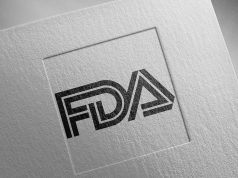Reductions seen in office systolic blood pressure for those in no-CKD, stage 3a CKD, and stage 3b CKD groups
By Elana Gotkine HealthDay Reporter
FRIDAY, Oct. 31, 2025 (HealthDay News) — Radiofrequency renal denervation (RDN) yields a clinically meaningful and durable reduction in blood pressure (BP), including among those with moderate-to-severe chronic kidney disease (CKD), according to a study published online Oct. 29 in Hypertension.
Markus P. Schlaich, from the University of Western Australia, and colleagues enrolled patients with uncontrolled hypertension and categorized them according to their baseline estimated glomerular filtration rate (eGFR; mL/min/1.73m2): eGFR ≥60 (no CKD; 2,539 participants); eGFR ≥45 to <60 (stage 3a CKD; 496 patients); and eGFR ≥30 to <45 (stage 3b; 256 patients). The participants underwent radiofrequency RDN, and the changes in BP were compared.
The researchers found that average baseline systolic BP was similar across the groups. At three years, the reductions in office systolic BP from baseline were –17.2 ± 28.1, –12.1 ± 30.3, and –13.0 ± 27.3 mmHg in the no-CKD, stage 3a, and stage 3b groups, respectively. Through one year, there was a mild decline in eGFR in the no-CKD group, but not in the CKD groups. In the no-CKD, stage 3a, and stage 3b groups, three-year mortality was 4.3, 7.0, and 15.2 percent, respectively. Across all three groups, adverse renal events were low (<1.0 percent). In the no-CKD and stage 3a groups, the burden of antihypertensive medication remained high, but it declined in the CKD stage 3b group over three years.
“RDN is likely to be safe and may represent an effective means of lowering BP in patients with moderate-to-severe CKD in whom other options have failed to adequately control BP,” the authors write.
Several authors disclosed ties to the pharmaceutical and medical device industries, including Medtronic, which funded the study.
Copyright © 2025 HealthDay. All rights reserved.








